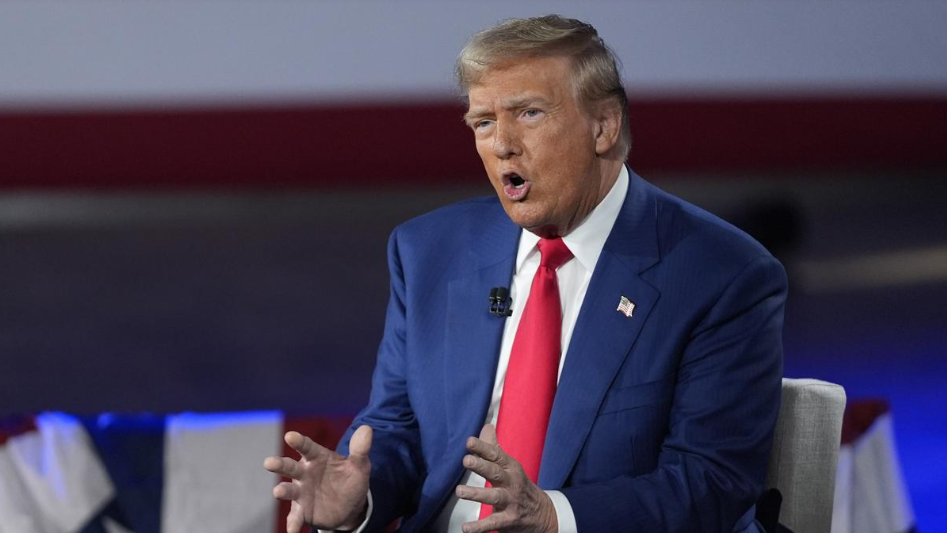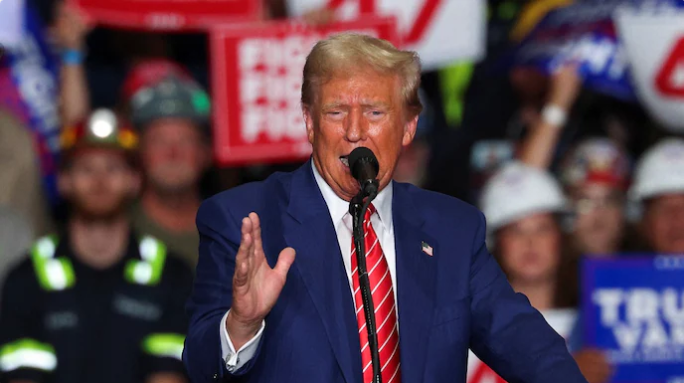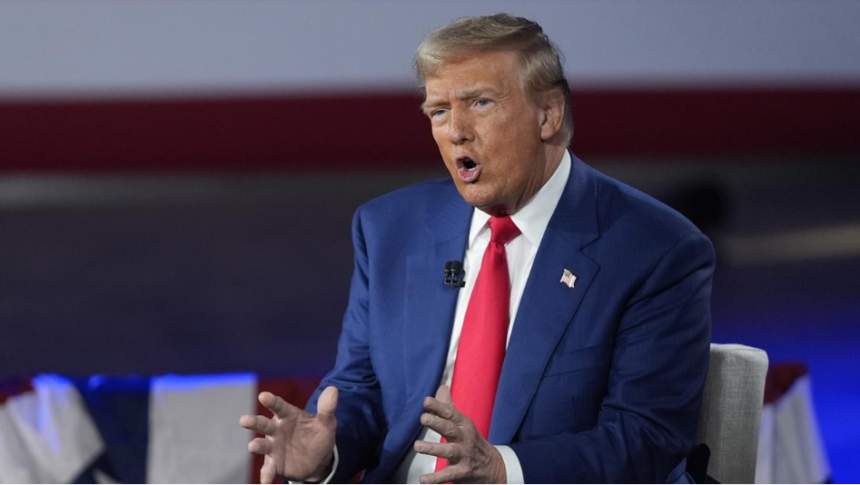Donald Trump Pleads Not Guilty in yet another dramatic turn in the legal saga surrounding former President Donald Trump, the 45th President of the United States pleaded not guilty to a revised indictment related to his alleged efforts to overturn the results of the 2020 presidential election. The revised charges, part of a broader investigation into the January 6 Capitol riot and attempts to subvert the election outcome, mark a critical juncture in a series of legal challenges Trump faces as he prepares for a possible 2024 presidential run. This article explores the nature of the revised indictment, Trump’s legal defense, the broader political and social implications, and the potential consequences for the U.S. political landscape.
The Revised Indictment: Key Details
The revised indictment, filed by Special Counsel Jack Smith and his team, includes several new charges that expand upon the initial indictment presented earlier in the year. The case centers on allegations that Trump, along with his close advisers and associates, orchestrated a wide-ranging conspiracy to disrupt the certification of President Joe Biden’s victory in the 2020 election. Specifically, the revised indictment includes counts related to conspiracy to defraud the United States, obstruction of an official proceeding, and conspiracy to deprive citizens of their right to have their votes counted.
One of the most significant changes in the revised indictment is the inclusion of additional co-conspirators, some of whom are believed to have played critical roles in advising Trump during the period following the November 2020 election. These individuals, referred to as “unindicted co-conspirators” in the legal documents, are reportedly involved in drafting legal strategies aimed at challenging the results in key battleground states and encouraging false claims of voter fraud.
Prosecutors argue that Trump’s actions, including the infamous phone call to Georgia Secretary of State Brad Raffensperger in which he asked him to “find” enough votes to overturn the state’s results, were part of a concerted effort to disrupt the democratic process. The indictment also highlights Trump’s public statements and tweets, which prosecutors say contributed to the atmosphere of anger and violence that ultimately culminated in the January 6 attack on the U.S. Capitol.
Trump’s Plea and Legal Defense
In response to the revised indictment, Donald Trump appeared in federal court and entered a plea of not guilty. This move was widely expected, as Trump and his legal team have consistently denied any wrongdoing in connection with the 2020 election and have framed the multiple investigations against him as politically motivated “witch hunts.” Trump’s defense team, led by a group of seasoned attorneys, has argued that his actions in the post-election period were protected by the First Amendment and that his claims of voter fraud, though ultimately unsubstantiated, were made in good faith.  for more information click on this link
for more information click on this link
Trump’s defense attorneys have also contended that the revised indictment amounts to an overreach by federal prosecutors, suggesting that the charges related to conspiracy and obstruction are vague and overly broad. They argue that Trump was exercising his legal right to contest the results of the election and that his attempts to challenge the vote count were within the bounds of the law. Additionally, Trump’s legal team has sought to portray the revised indictment as part of a broader effort by the Biden administration to undermine Trump’s potential 2024 presidential bid.
Throughout the legal proceedings, Trump has maintained a defiant stance, frequently speaking out against the indictments in public appearances and on social media. In a statement following his plea, Trump described the revised indictment as “a sham” and claimed that the charges were part of an ongoing effort by political opponents to prevent him from returning to the White House.
Broader Political and Social Implications
The revised indictment against Trump represents a critical moment in U.S. legal and political history. As the first former president to be charged with criminal offenses related to an attempt to subvert the democratic process, Trump’s case has significant implications not only for the rule of law but also for the future of American democracy.
One of the key issues at the heart of the indictment is the question of accountability for public officials who seek to undermine the results of a legitimate election. Legal scholars have pointed out that the charges against Trump, if proven in court, could set a powerful precedent for how the U.S. legal system responds to attempts to interfere with the peaceful transfer of power. In this sense, the case against Trump is seen as a test of the resilience of the country’s democratic institutions.
Moreover, Trump’s legal troubles are unfolding against the backdrop of his ongoing influence within the Republican Party and his efforts to secure the party’s nomination for the 2024 presidential election. Despite facing multiple indictments and legal challenges, Trump continues to enjoy widespread support among the GOP base, and many Republican lawmakers have rallied behind him, framing the charges as politically motivated attacks designed to weaken the party.
Trump’s legal battles have also deepened the country’s political polarization, with his supporters and detractors offering starkly different interpretations of the indictments. For many of Trump’s supporters, the charges are seen as an extension of the political establishment’s efforts to silence a candidate who they believe represents a threat to the status quo. Conversely, critics argue that the indictments reflect Trump’s dangerous disregard for democratic norms and the rule of law.
The revised indictment has also raised concerns about the potential for further unrest, particularly as the 2024 election cycle heats up. The January 6 Capitol riot demonstrated the willingness of some Trump supporters to resort to violence in defense of the former president, Donald Trump Pleads Not Guilty and there are fears that the legal proceedings could incite similar actions, particularly if Trump’s legal situation worsens.
The Impact on the 2024 Presidential Campaign
As Trump faces legal challenges on multiple fronts, the revised indictment poses a unique challenge for his 2024 presidential campaign. While Trump has remained a dominant figure within the Republican Party, Donald Trump Pleads Not Guilty the mounting legal issues have complicated his path to the nomination.
On one hand, Trump’s legal troubles have energized his base, many of whom view the indictments as a badge of honor and evidence that Trump is being targeted for his outsider status. In fundraising appeals and campaign speeches, Trump has frequently cited the legal cases against him as proof that he is fighting against a corrupt political system. This strategy has proven effective in galvanizing his core supporters, Donald Trump Pleads Not Guilty who remain fiercely loyal to the former president.
On the other hand, the legal proceedings have also created uncertainty among some Republican voters and donors who are concerned about the potential impact of Trump’s legal battles on the party’s prospects in the general election. While Trump continues to lead in most Republican primary polls, Donald Trump Pleads Not Guilty there is a growing recognition within the GOP that his legal problems could become a significant liability if he is nominated. Some party leaders have expressed concerns that Trump’s focus on his legal defense could distract from key campaign issues and alienate swing voters.
Moreover, the possibility of a criminal conviction looms large over Trump’s campaign. If Trump is found guilty on any of the charges outlined in the revised indictment, it could have far-reaching consequences for his ability to campaign and, ultimately, Donald Trump Pleads Not Guilty to serve as president if he were to win the 2024 election. Legal experts have noted that while there is no constitutional provision that explicitly prevents a convicted felon from running for or serving as president, the practical and political challenges of doing so would be immense.
Legal Proceedings Moving Forward
As Trump prepares to face trial on the revised indictment, the legal process is expected to be lengthy and complex. Given the high-profile nature of the case, Donald Trump Pleads Not Guilty both the prosecution and defense are likely to engage in extensive pre-trial motions and legal maneuvers, which could delay the proceedings for months or even years.  for more information click on this link
for more information click on this link
One of the key questions moving forward is whether the trial will take place before or after the 2024 presidential election. Trump’s legal team is expected to push for delays, arguing that the former president’s campaign commitments make it difficult for him to fully participate in the legal process. However, prosecutors are likely to argue that the case should move forward expeditiously, Donald Trump Pleads Not Guilty given the public interest in holding a former president accountable for alleged criminal conduct.
Additionally, there is the possibility that Trump’s legal team could seek to negotiate a plea deal or settlement, though Trump’s public statements thus far suggest that he is determined to fight the charges in court. Any potential plea deal would likely involve significant concessions on Trump’s part, including the possibility of a guilty plea to lesser charges.
Conclusion: A Pivotal Moment for U.S. Democracy
Donald Trump’s plea of not guilty to the revised indictment related to the 2020 election represents a pivotal moment in U.S. history, Donald Trump Pleads Not Guilty one that will have far-reaching implications for the country’s legal and political landscape. As the case moves forward, Donald Trump Pleads Not Guilty it will serve as a test of the strength of the U.S. judicial system and the resilience of its democratic institutions.
For Trump, the legal proceedings are both a personal and political battle, one that could determine the future of his political career. As he continues to campaign for the 2024 Republican nomination, Trump’s legal troubles will remain a central issue, Donald Trump Pleads Not Guilty shaping the dynamics of the race and potentially influencing the outcome of the next presidential election.
Ultimately, the case against Trump is about more than just one man’s actions—it is about the integrity of the democratic process and the rule of law. As the U.S. grapples with the legacy of the 2020 election and the events of January 6, Donald Trump Pleads Not Guilty the outcome of this case will likely have a lasting impact on the country’s political future. ALSO READ:- Russia Claims RT Sanctions Are Part of U.S. Pre-Election ‘Information Campaign 2024





